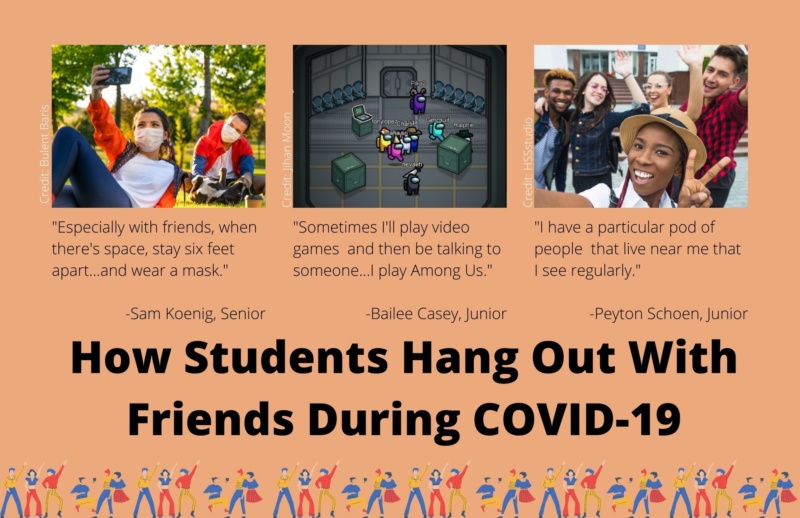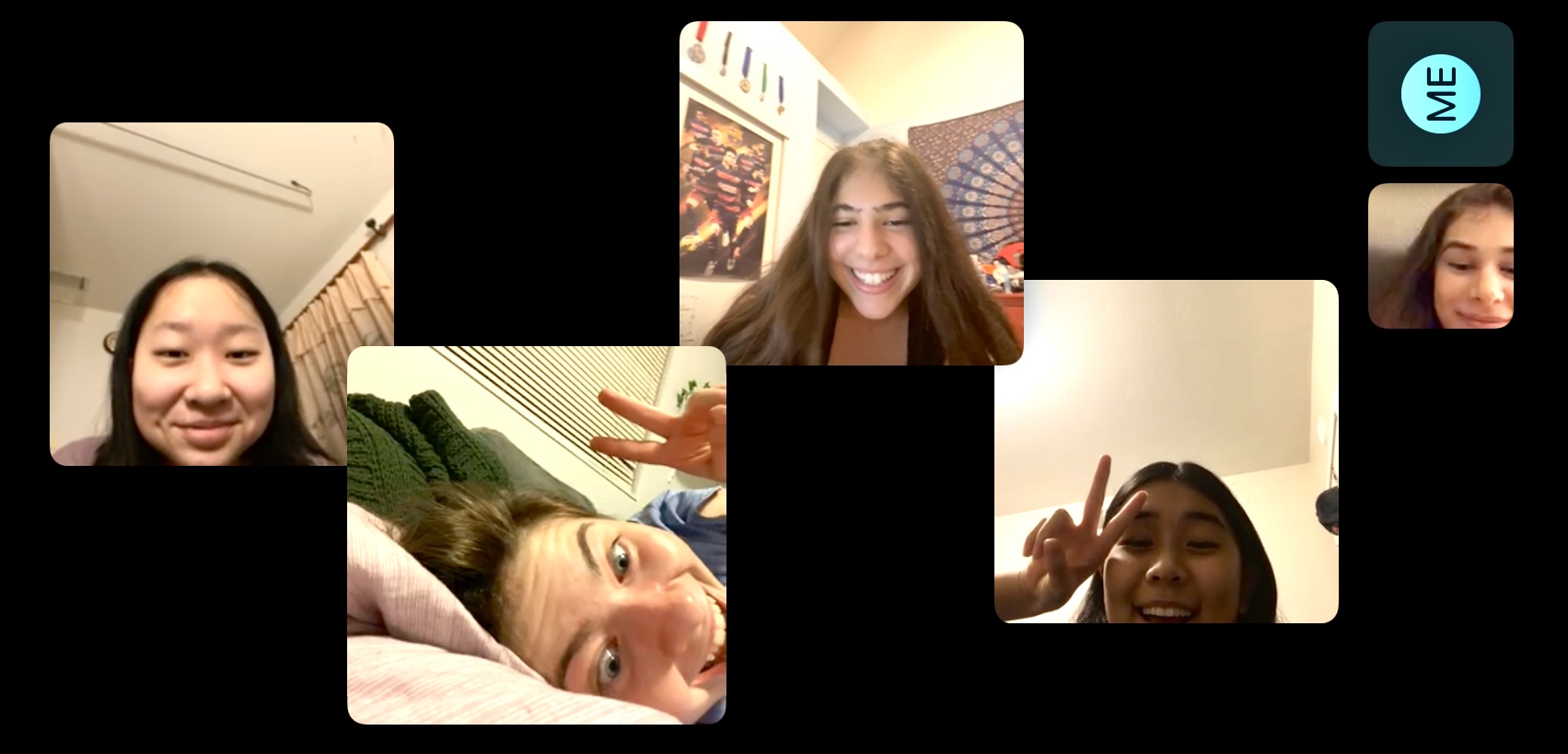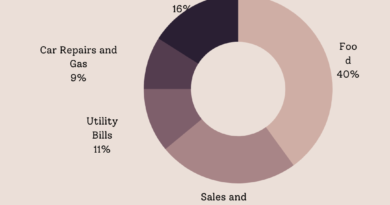Friendships flourish and fade as the pandemic continues
PHOTO: Junior May Wang FaceTimes her friend group consisting of juniors Lily Rigor, Kiana Bagheban, Grace Mun and Lydia Wallman (left to right).
By Jihan Moon,
BlueDevilHUB.com Editor–
Junior May Wang hastily snatches up her mask, wallet, keys and phone before notifying her parents that she’s heading out the door. She hops in her bronze Grand Cherokee and pulls out into the street, on her way to join her friends at Walnut Park.
Wang and her friend group have been frequenting Walnut Park and the nearby boba shop Teabo during quarantine. Like many high school students, they have found ways to stay connected amid the pandemic. Even though teens have found several different ways to spend time together, their friendships have evolved due to the new norm.
“I think, definitely, for some of my friends we haven’t been reaching out to each other very much so I think by the end of quarantine the true friends that I have are going to be […] more bonded,” junior Bailee Casey said.
Senior Vivian Lee predicted that her friendships would wane, but her prognosis was incorrect. “It strengthens friendship in the sense that you’re having to promote it. When you’re going to school […] you are forced to see each other versus being in separate areas you’re having to actually put effort into communication,” said senior Mia Mangney, who is in Lee’s friend group.
Wang attributes her strengthened friendships to her friend group having more time to talk. “I have gotten to know them much better because we are talking much more. […] In person we didn’t have much hang out time to say everything because we had stuff to do. During our FaceTimes we say more, do more,” Wang said.
Junior Peyton Schoen hasn’t witnessed her friendships change due to the coronavirus and doesn’t know how they will change by the quarantine’s conclusion. “I think that if it’s truly friendship that you will be able to go back to being friends no matter how long you haven’t seen them,” Schoen said.
During the pandemic, Schoen and her friend group have discussed politics and current national affairs to a greater degree “’cause that’s really all there is to talk about at this point,” Schoen said. They have also started to play Among Us as a diverting way to hang out without the weight of the world on their shoulders.

Wang’s parents strictly imposed rules about leaving the house; they largely prohibited Wang from leaving her house unless to practice driving or for grocery shopping. They weren’t only concerned about COVID-19 safety, but also verbally racist actions.
Wang’s parents were anxious after learning of a few altercations in Davis and Woodland, such as two parents in Davis being followed and people in Woodland being told to go back where they come from.
Wang expressed these concerns to her friends once she could physically see them. “[Their reaction] did make me feel comfort […] because I could trust them and confide in them,” Wang said.
Senior Sam Koenig also wasn’t allowed to hang out with friends at first. “I’d hang out with them after [my parents allowed me to…]. I didn’t know them as well; […] we didn’t really have the same inside jokes but then that came back super quick. It was just weird being around my friends without being that close to them,” Koenig said.
Quarantine has caused some hostility and tension within friend groups.
Lee has found that miscommunications occur more easily than previously. “I did something that wasn’t so obvious to me that it would hurt someone’s feelings, but I think had I been interacting with people on a daily basis […] it would have been much clearer to me and I wouldn’t have considered doing it,” Lee said.
While Koenig and most of his friend group strictly follow social distancing regulations, he has a few friends who don’t. “It’s not like we hate each other. […] I wish I could be like ‘it’s not a big deal’, but to me it is a big deal,” Koenig said.
Local therapist Uta Russell helps her teen clients deal with friendship issues. “The pandemic brings another layer of complication to [friendships] because people have different comfort levels about hanging out together. […] The fear of missing out kicks in. When teens who stay at home and don’t go to group gatherings see on social media all their friends went to a party or […] gathering,” Russell said.
Russell encourages teens to stay as connected as possible to their friends. “Teen brains are wired to connect with people, to look people in the eye, to see nonverbal behavior. I would encourage teens who are feeling lonely to FaceTime, or whatever feels comfortable, and not just text,” Russell said.




